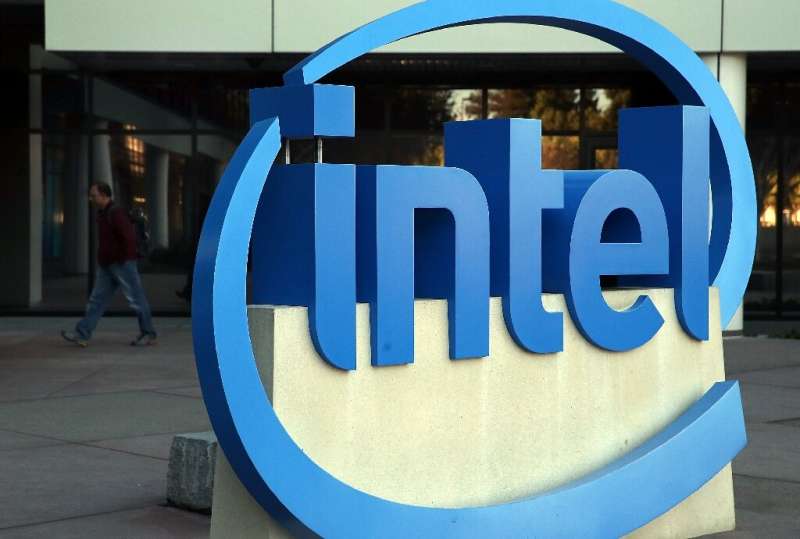Intel said it saw "explosive" growth in demand for its computer chips in the past quarter, helping boost revenue above forecasts
US semiconductor giant Intel on Thursday said it took in more money than expected in the first quarter amid "explosive" growth in demand for computer chips.
Intel revenue was $19.7 billion during the first three months of this year, up nearly $1 billion from the same period in 2020, according to its earnings report.
"Intel delivered strong first-quarter results driven by exceptional demand for our leadership products and outstanding execution by our team," chief executive Pat Gelsinger said in a release.
The results come as trends in remote work, school and socializing driven by the pandemic have revived interest in laptop and desktop computers and increased the need for data centers, all of which demand chips.
The chip industry is seeing a cycle of "explosive growth" and this year is on track to be one of the biggest ever for personal computer shipments, according to Gelsinger.
"Overall, Intel had a good quarter as it is taking advantage of the huge uptick in overall chip demand for computers," said analyst Patrick Moorhead of Moor Insights and Strategy.
"I'm very pleased to see Mobileye keep blowing away its numbers as it did last quarter."
Mobileye, an arm of Intel specializing in technology for automated driving systems in vehicles, brought in $377 million in the quarter, up 48 percent from the same period a year earlier.
Intel shares slipped nearly 3 percent in after-hours trades that followed release of the earnings figures, which showed it made a profit of $3.4 billion, a 41 percent decline from the same quarter a year earlier.
While Intel remains one of the world's leading chip companies, it has lagged behind rivals in the fast-growing segment of mobile devices, and its chips are being phased out by Apple, which is developing its own microprocessors for its Mac computers.
"This is a pivotal year for Intel," said Gelsinger, fresh in his role as chief executive.
"We are setting our strategic foundation and investing to accelerate our trajectory and capitalize on the explosive growth in semiconductors that power our increasingly digital world."
Intel has unveiled plans to spend $20 billion building two new plants in Arizona as part of a plan to boost production at home and in Europe.
A global chip shortage has ramped up pressure to reduce reliance on factories in Asia.
"Governments around the world are recognizing the critical nature of semiconductors and the need to increase advanced chip manufacturing capacity and prepare for the future," Gelsinger said.
He added that he was "encouraged" that US President Joe Biden recognized chip manufacturing as a critical part of national infrastructure deserving of investment.
© 2021 AFP
























